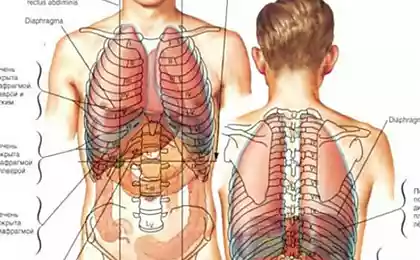136
6 Reasons Why You're Sad, Even If Life Is All Right

Do you have a feeling that, despite the objectively prosperous life, periodically rolls sadness? Everything seems to be going according to plan: work does not cause serious difficulties, relationships are stable, and health does not give cause for concern. And yet there comes a feeling of sadness, sometimes strong, then almost imperceptible, but still stubbornly making itself felt.
This phenomenon is not so rare. According to the World Health Organization (WHO), a significant proportion of people around the world suffer from episodes of incomprehensible longing. This is not always the cause of obvious life dramatic events. Simply put, it is possible to be sad “for no apparent reason” – at least at first glance. However, this emotional state often has its deep roots. In this article, we will look at six common factors that can cause unexplained sadness and discuss how to deal with it.
The article is addressed to a wide adult audience and is designed for those who want to understand the peculiarities of their own psyche. We will try not only to highlight the underlying causes of “causeless” sadness, but also to share strategies to help restore emotional balance.
Main part
1. Lack of deep social ties
In the era of global digital communication, we can easily communicate with people from anywhere in the world, but superficial contact does not always satisfy the need for genuine intimacy. According to the American Psychological Association, the average person spends several hours a day on instant messengers and social networks, but the feeling of loneliness does not decrease.
- Symptoms of “digital loneliness” The number of “likes” and short messages increases, but deep heartfelt conversations become rare.
- Sign of unmet need: It may seem to you that you are in touch with the whole world, but in fact - to experience emotional hunger, when there is no person nearby who is able to understand and empathize.

2. Chronic fatigue syndrome
Even if you formally observe a sleep regime, do not feel constant fatigue and do not face extreme stress, your body can be in a state of chronic stress. The accumulated overstrain can manifest itself in the form of emotional "burnout", caused by constant tension of the nervous system.
- The perfectionist trap: The desire to do everything perfectly increases the risk of emotional burnout, when a person does not notice the signals of the body that it is time to slow down.
- Sluggish mood and apathy: If every morning you are faced with a heaviness on the soul, but you can not explain it to specific problems, perhaps you just need a better rest.
3. Subconscious conflicts and unspoken emotions
The human psyche sometimes resembles an iceberg: some thoughts and experiences are realized, and some remain deep under water. When we ignore internal conflicts, such as rejection of our position, dissatisfaction in relationships or secret grievances, these hidden emotions can manifest themselves under the guise of causeless sadness.
The problem is aggravated when we are used to silence the negative. Many people learn from childhood that feeling angry or sad is “not good.” But the repressed feelings will continue to live in our subconscious and make themselves felt through periods of sadness or sudden bad mood.
One way to determine if sadness is hiding an internal trauma or resentment is to start a personal journal or practice writing exercises. Write down any thoughts, anxieties, and feelings that arise when sadness comes “without warning.” Over time, you will discover patterns and understand what life situations cause hidden emotional outbursts.
4. Hormonal Imbalance and Features of Physiology
Even with full well-being in social and personal life, the body may lack certain hormones or nutrients responsible for a stable good mood. For example, a vitamin D deficiency or a lack of serotonin often leads to a condition close to depression.
- Lack of sunlight: In regions with long winters or frequent cloudy days, people often experience seasonal depression (SAD).
- Hormonal fluctuations: In women, during different phases of the cycle, mood can change dramatically, and sometimes this causes a certain amount of “unexplained” sadness.
5. Lack of clear purpose and meaning
When there is no clear direction in life, we often feel apathy, which is mistaken for sadness for no reason. For example, you can have a stable job, a friendly family and even fascinating hobbies, but the inner emptiness still does not leave.
Researchers at Stanford University say having “great meaning” in life — a global goal or understanding one’s own contribution to the world — significantly reduces the risk of emotional downturns. Without such a feeling, people often get lost, especially if outwardly they are “everything good”, but inside they do not see further horizons.
If you feel like you’re moving through life without a map, try asking yourself questions about personal values: What really brings you joy and a sense of the importance of your actions? What goals have inspired you in the past? It may be time to re-evaluate work priorities, find a new job, or increase the level of responsibility in an existing business.

6. Overloading negative information
Many people consume a huge stream of news every day – political, economic, social. Often, the media try to attract attention with negative headlines, because fear and anxiety invariably elicit a response from the audience. Such a marathon of bad news, even if it does not directly affect you, affects the psyche.
We may feel causeless sadness as we witness the misery and conflict of others. This condition is sometimes called “emotional infection” – a person experiences stress, trying on the negative observed from the outside. If there are no external reasons for sadness in your daily life, you may too often encounter unpleasant or shocking reports.
What do I do? Try to specifically limit your consumption of news and content that causes anxiety. Try to devote more time to positive sources or formations of materials that help develop. “Media-detox” is not a call to ignorance, but a way to rationally dose information flows in order to maintain mental balance.
How to cope with incomprehensible sadness
Step-by-step advice
- Analyze your emotions. Keep a diary or just fix it in your mind when sadness comes. Try to catch patterns.
- Look for psychological support. This can be a conversation with a close friend, visiting mutual aid groups or consulting a specialist.
- Pay attention to your lifestyle. Regular nutrition, adequate sleep and moderate physical activity are three factors that reduce the likelihood of emotional downturns.
- Try new hobbies. Finding interesting hobbies helps to “reset” and helps to discover additional meanings in life.
- Practice meditation and relaxation techniques. Breathing exercises, yoga and any calm practice help stabilize your mood.
- Control the flow of information. Try to “filter” news feeds and social networks, so as not to be saturated with negativity.
Conclusion
Human emotions are a complex and multi-level system that is influenced by both external circumstances and internal psychological processes. Sadness “without a reason” is usually not really causeless: it can be subconscious conflicts, lack of social connections, physiological characteristics or chronic overstrain.
The key to solving this problem is to realize that sadness is a natural part of the emotional spectrum, not something shameful or wrong. But if the feeling of sadness begins to interfere with normal life and persists for too long, it is worth paying attention to this. The principles described above will help you better understand your own feelings and choose the best ways to overcome them.
Sometimes it is enough to change the mode of the day, find a new goal or reconsider the attitude to social ties to feel much easier. In other cases, deep work on yourself or consultation with a psychologist is required. In any case, the more we know about the nature of our emotions, the more effectively we can manage them. And sadness, which arose seemingly out of the blue, turns from a frightening “guest” into a signal that it is time to get to know yourself better and make positive changes in your life.
How tech corporations break all imaginable rules and laws
"I have no talents": How blindness to one’s own abilities became a twenty-first-century epidemic























